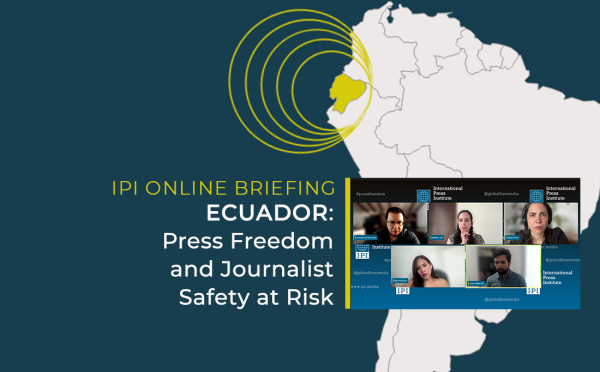The International Press Institute (IPI) expressed dismay at the decision of a Honduran appeals court to reinstate a 16-month journalism ban against Globo TV news programme host Julio Ernesto Alvarado. The ruling, handed down in August but apparently only made available to Alvarado’s lawyer at the end of September, is the result of a criminal defamation case brought against the journalist for reporting on allegedly corrupt activities of the economic and science faculty dean at Honduras’ National Autonomous University (UNAH).
The case dates back to 2006, when the dean, Belinda Flores, was alleged to have engaged in the falsification of university degrees and “influence peddling”. In three different episodes of his news program “Mi Nación” in June of that year, Alvarado discussed the scandal with two UNAH faculty members. All three were charged with defamation but were eventually acquitted in March 2011 when the court accepted evidence of wrongdoing on the part of Flores. The latter appealed and in 2013, a court in Tegucigalpa sentenced Alvarado to 16 months in prison and imposed a ban on his journalistic activity. Alvarado succeeded in converting his prison sentence into a fine of 10 lempiras a day for the same length of time, an amount that would total less than €200. The journalism ban was also lifted. However, Flores appealed again and the court reinstated the ban.
Since 2006, Alvarado has been subjected to harassment and intimidation as a result of his reporting on this case. He was harassed on Facebook and, on two occasions, was followed home by unidentified individuals.
“The criminal sentence handed down to Julio Ernesto Alvarado represents a serious violation of international standards especially as it carried imprisonment and limits the journalist’s civil rights,” IPI Press Freedom Manager Barbara Trionfi said.
In 2002 and 2010 the UN Special Rapporteur on Freedom of Opinion and Expression, the OSCE Representative on Freedom of the Media and the OAS Special Rapporteur on Freedom of Expression issued joint declarations urging the abolition of all criminal defamation laws. The 2010 statement condemned certain forms of punishment for defamation including “imprisonment, […] loss of civil rights, including the right to practise journalism” as disproportionate and “unduly harsh.”


